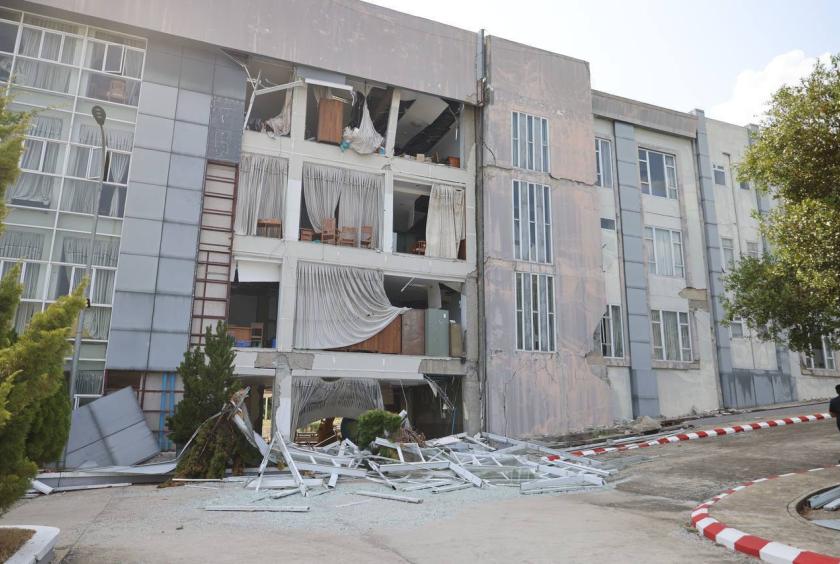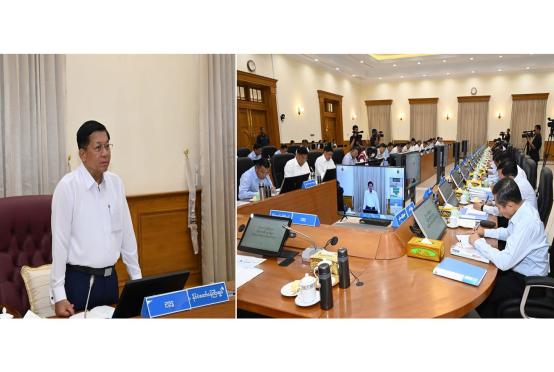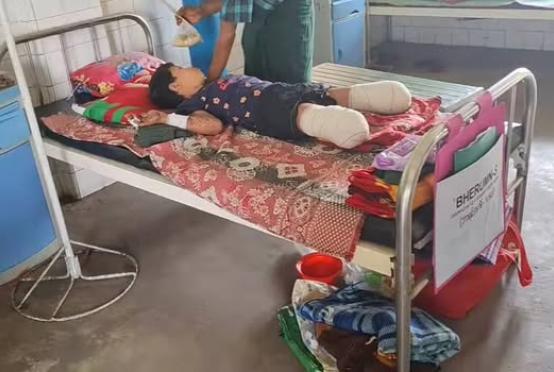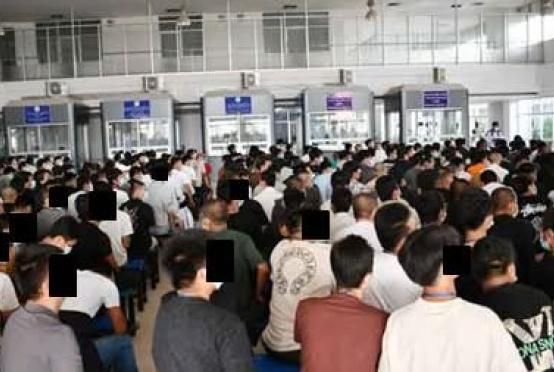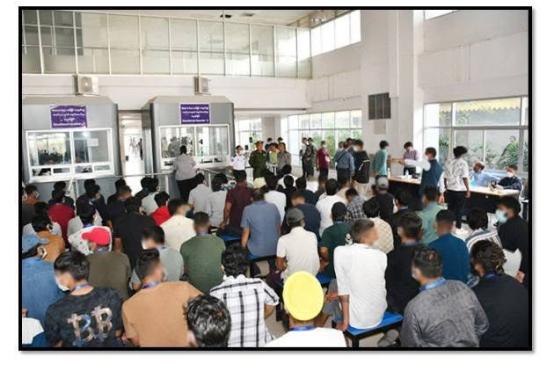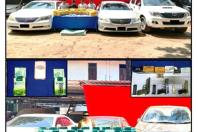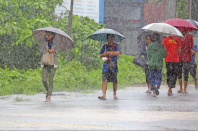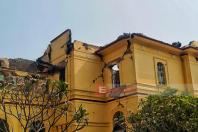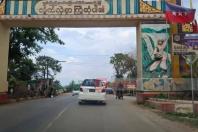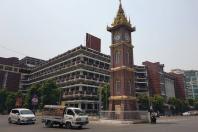The Chairman of the State Administration Council (SAC) and the Prime Minister, Senior General Min Aung Hlaing, inspected the quake-damaged ministerial buildings in Nay Pyi Taw.
Senior General Min Aung Hlaing, accompanied by the Vice Chairman of the Council, Deputy Prime Minister, Vice-Senior General Soe Win, Council Secretary, General Aung Lin Dwe, Joint Secretary, General Ye Win Oo, Union Ministers, the Chairman of the Nay Pyi Taw Council and officials, inspected the quake-damaged ministerial buildings in Nay Pyi Taw on the morning and evening of April 18.
During the inspection, the Prime Minister and members inspected the damaged buildings of the Supreme Court of the Union, the Ministry of Labour, the collapsed earth retaining wall of the Ministry of Law, the Ministry of Planning and Finance, the Union Civil Service Board, the Ministry of Foreign Affairs, and Department of Social Security under the Ministry of Labour and the arrangements for temporary accommodation for employees, Union-level officials and Union Ministers explained the damage to the buildings due to the earthquake, the opening of temporary offices and the provision of temporary accommodation for employees’ families.
Following the explanations, the SAC Chairman directed that important documents, equipment and movable items in the office buildings should be moved as soon as possible, and that the reconstruction of the damaged office buildings should be carried out with the advice of earthquake experts and construction experts to ensure their long-term stability and to make them earthquake-resistant buildings.
In addition, the SAC Chairman advised that instead of constructing buildings in one large-scale building, the buildings should be built in sections and if the buildings are built in sections, they will be more resistant to earthquakes. It is necessary to systematically consider the water and electricity lines needed to ensure long-term strength from the beginning of construction. The state will also provide temporary living quarters for the staff members' families. The state will also provide adequate water to drink and use, and provide convenient food for the staff members, and other necessary instructions were given.


